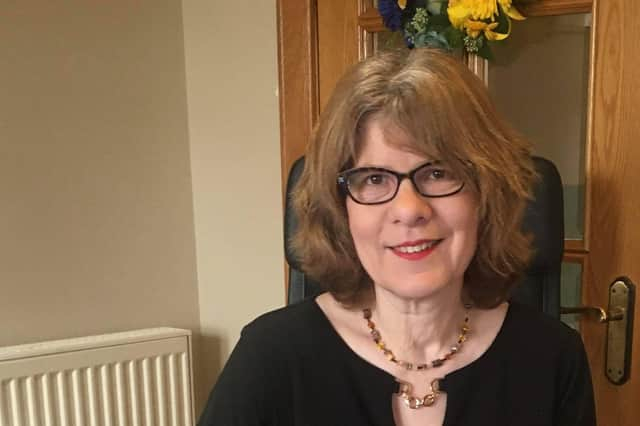Scottish Government's failure to empower local authorities is dangerous – Cosla president Alison Evison


Campbell Christie identified four ‘pillars’ that should inform future working:
Reforms must aim to empower individuals and communities receiving public services by involving them in the design and delivery of the services they use; Public service providers must be required to work much more closely in partnership, to integrate service provision and thus improve the outcomes they achieve; Priority should be given to expenditure on public services which prevents negative outcomes from arising; The whole system of public services – public, third and private sectors – must become more efficient by reducing duplication and sharing services wherever possible.
Advertisement
Hide AdAdvertisement
Hide AdThe Christie Report and all its recommendations have been in existence all the time I have been a councillor in Aberdeenshire and the president of Cosla.
Which begs three questions: Have I seen any changes as a result during my time as a councillor? Yes, there has been progress, but in a fragmented way, with no overall change in the culture and ethos that lies behind the report. Am I disappointed? Yes. Are our communities missing out? Yes.
So why have the recommendations from Campbell’s report not been implemented as he had hoped, why has the vision he had for public service delivery in Scotland, to make it a better place for its citizens, not yet come to fruition?
The Scottish Government’s rhetoric on empowering the local does not match the reality. This is neither sustainable nor healthy and flies in the face of Campbell’s report.


This is a dangerous position for us all because it switches off the people within communities with whom we are trying to engage.
There are a couple of things to say on this. Firstly, it is indeed right and proper that decisions should be made at the most local level possible and there is a role for central governments of all persuasions to play in making this happen.
Likewise, there should be greater recognition of the implications for local delivery of national strategic commitments. Any new initiatives should be integrated into existing approaches rather than resulting in additional governance bodies.
We must move away from decision-makers across the public sector paying lip service to the Christie report because they think they should. The whole-systems change which implementing its recommendations in full would require cannot occur until we break down the barriers that exist between public sector partners. These have largely come about due to avoidable competition over the allocation of scarce funding and priorities which have not been developed in partnership.
Advertisement
Hide AdAdvertisement
Hide AdWe need to recognise the anchor role of local government and address its significant under-funding. A lack of certainty and of support for long-term planning means that the prevention agenda of which Christie spoke is not being addressed.
Prevention is the key to reducing demand on public services, especially demand arising from poor health.
As a country, we need to build the confidence that if we take a leap of faith together, then the desired outcomes will be achieved.
And as public sector leaders, we must do all within our power to guard against the feeling across our communities that ‘nothing will change, so what is the point anyway?’
Too many people see our public services as ‘them’ – we have work to do to develop ‘us’ if we are to implement the Christie report.
So how do we address this? Firstly, local government must be allowed the leadership role it deserves as the democratically elected sphere of government closest to our communities. And it needs to be allowed a full partnership role alongside the Scottish Government as two equal spheres of government in Scotland.
From a local government perspective, there is much justifiable frustration – we know the benefits that can come from embedding Christie’s recommendations.
The local governance review remains a means of overcoming this frustration but we must all embrace new types of decision-making.
Advertisement
Hide AdAdvertisement
Hide AdIndeed, local government has tried with the inclusion of three empowerments in the review: fiscal empowerment which would give local councils more control over their finances; functional empowerment which would enable different organisations to work together effectively; and community empowerment which would strengthen decision making powers at the most local level. We are waiting for these to be embraced wholeheartedly across the whole of the public sector.
The experience of Covid has given us a tantalising insight into what could be achieved if we did fully implement the Christie report.
Across Scotland, we have seen what can be achieved when the local community is empowered in the way that both Christie and Cosla’s ‘Blueprint’ want to see, when public sector partners work alongside each other and embrace collaboration with local third-sector groups.
Let’s take that learning and develop it as we move forward in the way that Christie’s four-pillar approach sought to do.
We have seen throughout the pandemic what can be achieved when local government and communities come together – now is the time to maintain and build on this. Communities hold the answers to the issues they face, and local government stands as the enabling force empowering communities to work with partners to drive forward a transformative collaborative programme of social, economic and environmental renewal.
Ten years on from its publication, the Christie report can still be the vehicle that we use to drive the change he and all of us should want to see being delivered, but let’s make the progress in the next ten years better than the last. Otherwise, it may be too late and we risk losing all the intentions within Christie for good.
Councillor Alison Evison is president of local authority body Cosla
A message from the Editor:
Thank you for reading this article. We're more reliant on your support than ever as the shift in consumer habits brought about by coronavirus impacts our advertisers.
If you haven't already, please consider supporting our trusted, fact-checked journalism by taking out a digital subscription.
Comments
Want to join the conversation? Please or to comment on this article.
